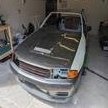Cool Fuel In F1 ?
Announcements
-
Similar Content
-
Latest Posts
-
Very slightly as there are bars connecting both sides of the ramp. The only difficulty that I had was doing the gearbox, everything else so far has been ok
-
Hey, mike has that RB25DE non VCT might be applicable to your need. I would advice to email him for pictures if you're still interested. I suggest email him because he his yet to upload pics to the forum which give me assurance that he hasn't sold it..markettrading1002 at aol dot com tell him from daniel
-
Hey, mike has that Auto GTS4/Stagea transfer case might be applicable to your need. I would advice to email him for pictures if you're still interested. I suggest email him because he his yet to upload pics to the forum which give me assurance that he hasn't sold it..markettrading1002 at aol dot com tell him from daniel
-
Hey, mike has that R34 GTR boot battery bracket might be applicable to your need. I would advice to email him for pictures if you're still interested. I suggest email him because he his yet to upload pics to the forum which give me assurance that he hasn't sold it..markettrading1002 at aol dot com tell him from daniel





Recommended Posts
Create an account or sign in to comment
You need to be a member in order to leave a comment
Create an account
Sign up for a new account in our community. It's easy!
Register a new accountSign in
Already have an account? Sign in here.
Sign In Now